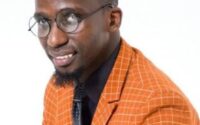Oge Onubogu Biography, Age 2025, Career, Early Life, Education, Personal Life
Oge Onubogu Biography – Imagine stepping into a congressional hearing room, where the air buzzes with tension over Nigeria’s endless security woes.That’s where you’ll find Oge Onubogu, not just testifying, but reshaping the conversation with her sharp insights like in her March 2025 address to the House Foreign Affairs Committee, urging a deeper look beyond religious labels to the tangled roots of conflict. Hey, if you’re scrolling through this Oge Onubogu biography, you’re probably curious about the woman who’s become a go-to voice on everything from democratic backsliding in West Africa to turbocharging trade under AGOA. With nearly two decades under her belt, Oge isn’t your typical policy wonk; she’s a bridge-builder, blending Nigerian heritage with American savvy to champion inclusive governance.
Picture her career as a sturdy acacia tree deep roots in education, branches stretching across think tanks like USIP, Wilson Center, and now CSIS, all bearing fruit in stronger US-Africa ties. In this piece, we’ll wander through her early sparks of curiosity, her gritty entry into humanitarian work, those game-changing leadership leaps, her spotlight moments on global stages, and the personal fire that fuels her legacy. Why does it matter? Because in a world quick to slap simple labels on Africa’s complexities, Oge reminds us: real change starts with seeing the full picture.
Early Life and Education
You know that feeling when a place whispers secrets to you as a kid, planting seeds that bloom into a life’s work? For Oge Onubogu, that whisper came from her Nigerian roots, where family stories of resilience amid colonial echoes and post-independence dreams likely lit her first fire for global justice. Though details on her exact birthplace remain tucked away like a well-guarded family recipe her path screams of a diaspora kid bridging worlds. Raised in an environment buzzing with African diaspora energy, Oge’s early years were a mosaic of cultural pride and curiosity about how nations heal old wounds. Fast-forward to her undergrad days at the University of Oklahoma, where she snagged a bachelor’s in International and Area Studies around the early 2000s.
While classmates geeked out over textbooks, Oge was probably mapping out Africa’s post-colonial puzzles, her mind racing like a Lagos market at dawn vibrant, chaotic, full of potential. “What if education wasn’t just facts, but a toolkit for equity?” she’d muse, diving into courses that dissected everything from refugee flows to economic disparities.
But Oge didn’t stop at Sooner Nation. No, she leveled up with a master’s in International Development from Brandeis University’s Heller School in the mid-2000s, right as Southern Africa’s election reforms were shaking things up. Here, she honed her edge on sustainable growth, asking tough questions like, “How do you build economies that lift everyone, not just the elite?” It’s like she was forging a sword in academia’s fire practical, sharp, ready for real-world battles. And let’s not forget her credential in Public Leadership from Harvard Kennedy School in the 2010s, amid the buzz of US-Africa summits. Harvard? That’s where visionaries like her learn to lead without ego, turning policy pipe dreams into actionable plans.
These milestones weren’t checkboxes; they were her compass, pointing straight to Africa’s heart. Ever wonder how a degree in area studies morphs into directing billion-dollar peace initiatives? For Oge, it was about weaving personal heritage with global smarts, setting the stage for a career that screams, “Africa’s future is now.” Her education didn’t just teach her facts it taught her to question, to connect, to care deeply. And in a field often dominated by outsiders’ gazes, that’s her superpower.
Career
Fresh out of Brandeis, Oge didn’t chase cushy desk jobs; she plunged into the messy, meaningful trenches of humanitarian aid.
Coordinating refugee resettlement with the International Rescue Committee (IRC) in the mid-2000s, helping folks fleeing Sierra Leone’s and Liberia’s scars find footing in the US. “How do you rebuild a life shattered by war?” she’d ask herself daily, sifting through stories that could break the toughest hearts. It was hands-on grit paperwork marathons mixed with empathy-fueled breakthroughs teaching her that policy isn’t abstract; it’s about people picking up pieces. From there, she pivoted to the National Endowment for Democracy (NED) as a Program Officer for Anglophone West Africa, managing a multi-million-dollar grants portfolio for civil society outfits in Nigeria, Sierra Leone, Ghana, and Cameroon. Imagine funneling funds to grassroots heroes fighting corruption or rallying voters Oge was the architect, ensuring every dollar sparked real change, like igniting small fires that warm entire villages.
Then came her Program Manager gig at the National Democratic Institute (NDI), where she orchestrated citizen engagement, election monitoring, and political party tune-ups across Southern Africa: Malawi’s youth rallies, Zambia’s ballot watches, Zimbabwe’s tense polls, even Mozambique and Angola’s reform pushes. Oh, and don’t overlook her multi-country push for women’s political muscle empowering ladies from Botswana to South Africa to claim seats at the table. “Why let half the population sit on the sidelines?” she’d challenge, her work a metaphor for democracy’s unfinished quilt, stitching in overlooked threads. Alongside, Oge consulted for heavy-hitters like the World Bank on governance blueprints, Freedom House on transition roadmaps, and the Carter Center on election eyes in West Africa. These weren’t side hustles; they were her boot camp, blending fieldwork’s raw edges with strategic savvy.
By her early 30s, she’d gone from resettlement coordinator to grants guru, proving that early career stumbles those late nights decoding donor reports build the unshakeable foundation for later triumphs. What keeps someone grinding in these shadows? For Oge, it was the thrill of seeing silenced voices roar back. Her early hustle? It’s the unsung prelude to a symphony of influence.
Personal Insights and Legacy
Peel back the expert facade, and Oge Onubogu reveals a soul poet—wielding “beyond a single story” like a mantra, echoing Chimamanda Ngozi Adichie’s wisdom to unpack Nigeria’s security knots as tapestries of banditry, resources, and extremism, not just faith clashes. “Conflicts aren’t monoliths; they’re symphonies of struggles,” she’d say over coffee, her eyes lighting up like Lagos sunsets. Personally? She’s the quiet force behind Teraanga Strategies LLC, her consulting firm channeling Senegalese hospitality into policy bridges think risk assessments that feel like heartfelt advice.
Optimism? Overflowing. Oge bets big on Africa’s youth bulge and AfCFTA’s promise, viewing trade as the glue mending governance gaps: “Imagine 1.4 billion dreamers trading freely that’s rocket fuel for peace.” Her legacy? A blueprint for diaspora daughters: from Oklahoma classrooms to CSIS corridors, she’s mentored countless via NDI women’s programs and USIP partnerships, whispering, “Your voice matters use it.” Like a lighthouse in stormy Atlantic waters, Oge guides US policy toward equity, her two-decade arc a testament to persistence. She’s not chasing plaques; she’s planting seeds for Africa’s self-authored tomorrow. What insight lingers? In her words: “Partnerships thrive on respect, not rescue missions.” Oge’s not done; her legacy’s just warming up.
Conclusion
Wrapping up this Oge Onubogu biography feels like closing a chapter in an epic still unfolding—from those formative university days forging her global gaze, through gritty refugee coordinations and grant-fueled reforms, to pinnacle roles at USIP, Wilson, and CSIS where she’s scripted Africa’s policy playbook. She’s the conversational catalyst, turning hearings into heart-to-hearts, reminding us democracy’s a dialogue, not a decree. So, what’s next for you? Dive into her podcasts, follow CSIS Africa updates, or heck, start that Africa-focused book club. Oge’s story isn’t just inspiration it’s a nudge: Africa’s calling, and voices like hers show how we answer. Let’s build those bridges together, shall we?
FAQs
What is Oge Onubogu’s current role in Africa policy?
As of November 2025, Oge serves as Senior Fellow and Director of the Africa Program at CSIS, where she shapes strategies on US-Africa trade, security, and governance, building on her Wilson Center tenure.
How did Oge Onubogu start her career in international development?
She kicked off with refugee resettlement at the IRC, then managed grants at NED and programs at NDI, focusing on elections and civil society in West and Southern Africa pure hands-in-the-dirt passion.
What are some key testimonies Oge Onubogu has given to Congress?
Highlights include her 2024 hearing on Nigeria’s democratic future, March 2025 on conflict nuances, and November 2025 urging ambassador appointments each a masterclass in balanced advocacy.
What personal philosophy guides Oge Onubogu’s work?
She champions “beyond a single story” thinking, pushing for holistic views of Africa’s challenges, like blending security with economic empowerment to foster real, lasting partnerships.
How has Oge Onubogu influenced women’s participation in African politics?
Through NDI, she led multi-country initiatives boosting women’s roles in elections and parties across Southern Africa, mentoring a generation to shatter glass ceilings in governance.


